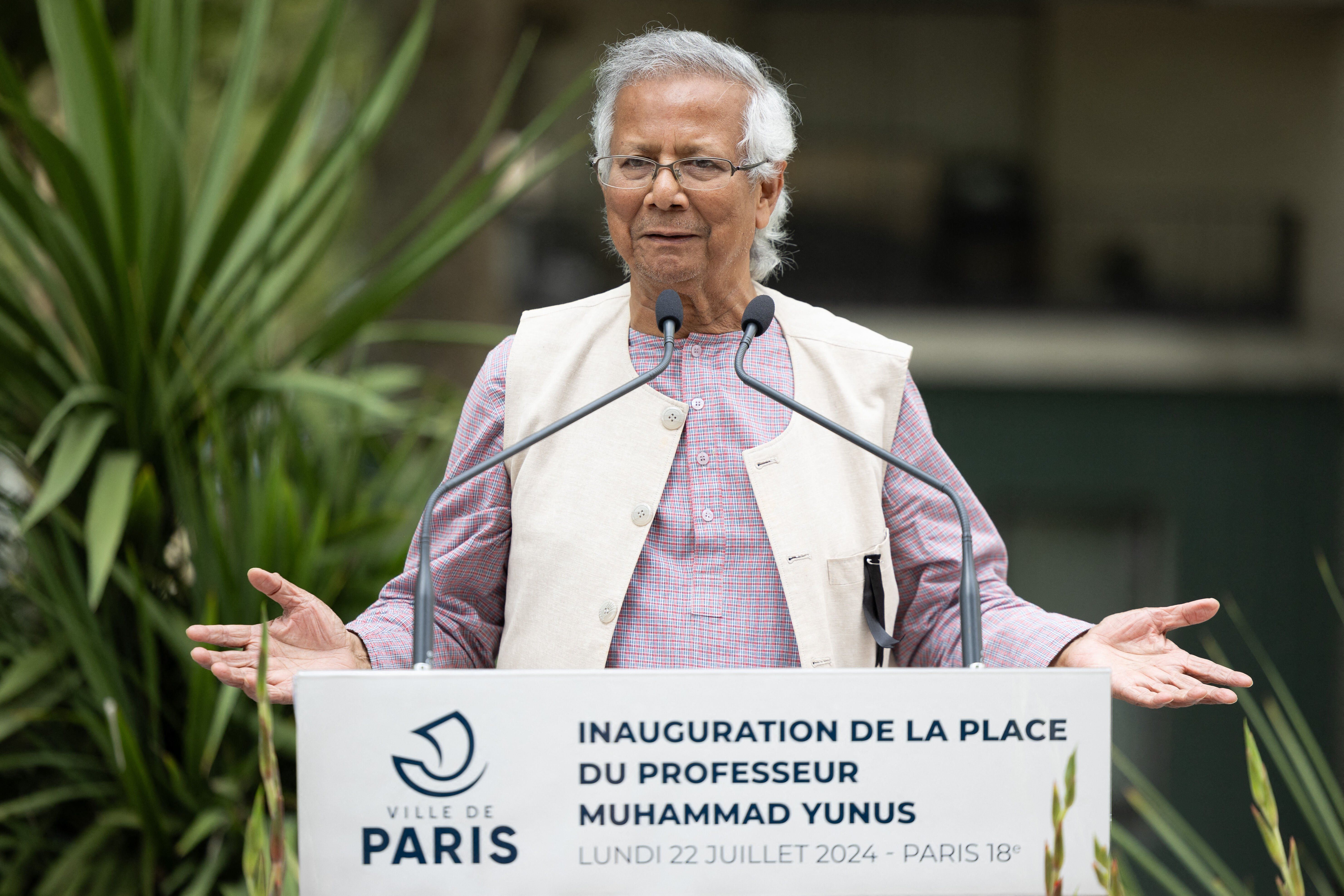Bangladesh’s Nobel laureate Muhammad Yunus will lead the country’s interim government, student protest leader Nahid Islam announced Tuesday. The news came a day after the student-led uprising against Prime Minister Sheikh Hasina led to herfleeing the country. At a meeting with the military and other political stakeholders, student protest leaders proposed that Yunus should take the helm.
Who is Yunus? He’s a longtime critic of Hasina and called her resignation the country’s “second liberation day.” The 84-year-old was awarded the Nobel Peace Prize in 2006 for pioneering the use of microfinance to help impoverished people, particularly women.
In 2007, he announced he would form a political party when the country was run by a military-backed government but abandoned the idea. He has faced investigations and allegations of embezzlement ever since, which hissupporters say are politically motivated because he challenged Hasina.
The challenge ahead: Yunus must reassure fellow Bangladeshis and restore order to the 170-million-strong population that’s been rattled by violent protests in recent weeks. Beyond that, he will need to shape the interim government and push for elections to choose the country’s next leader.
“I am honored by the trust of the protesters who wish for me to lead the interim government," he said in a statement. “If action is needed in Bangladesh, for my country, and for the courage of my people, then I will take it.”
